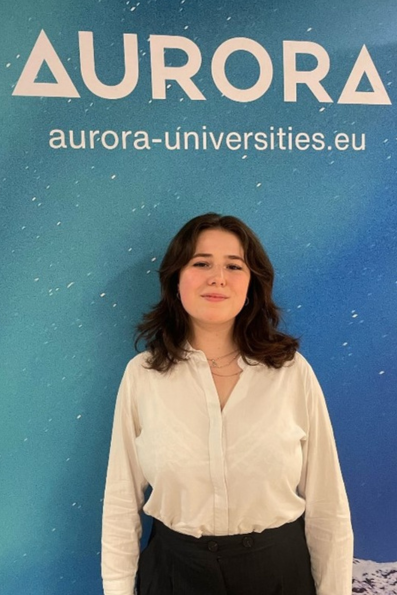From STEM to Social Sciences
Being a Biomedical Sciences student I never looked deeper into the social sciences and their topics of discussion. Most people from STEM fields I interact with look down on social studies and sign them off as useless and as just chatting. And there was a time where I would laugh if someone had told me that I would enjoy joining a peace conference this much. However, when I got the last-minute offer from the Aurora office to join this event I jumped at it.
Taking a leap into the unknown
This being the first conference I have ever been to, I had absolutely no idea what to expect. The first person I met surprised me by her openness and quickly became a close friend. She is a fellow student who also was offered to join the conference a few days prior and we immediately bonded over the stress of making rushed decisions and reservations. It was amazing to have someone to share thoughts and feelings with at the end of the day of the very packed schedule that was ahead of us.
A week of eye-opening experiences
Throughout the week we have heard countless captivating presentations, personal stories, research reports and innovative projects. Each day I learned something new. Thanks to the many opportunities for networking, I was able not only to meet some of the most amazing and inspiring people but also share my own experiences and weight into the debates.
A safe space for real conversations
One of the most powerful aspects of the conference was its open and judgment-free atmosphere. It became a safe space for meaningful dialogue about peace and the role of higher education in building it. I believe this impact could be even greater if more students participated, as this topic deeply affects us. The role of higher education in peacebuilding is crucial, and ensuring students have access to these discussions is essential. Whether you study political science or computer science, understanding peacebuilding, inequalities, and social issues is relevant because these challenges affect us all.
More than just a conference
Beyond the intellectual discussions, the conference felt like an immersive, human experience. Spending the whole week together, engaging in deep conversations, and sharing vulnerable moments created incredible bonds. I saw new friendships emerging – people who came to Innsbruck as strangers, hugging in tears, promising to stay in touch as they were departing to opposite parts of the world.
Leaving with hope
In the end, I left Innsbruck full of optimism and hope. The conference proved to me that people are actually capable of compassion and genuine efforts to understand one another. And that this could become the reality in many more places than just the one conference that I was so privileged to be able to join.
By Adéla Straková
